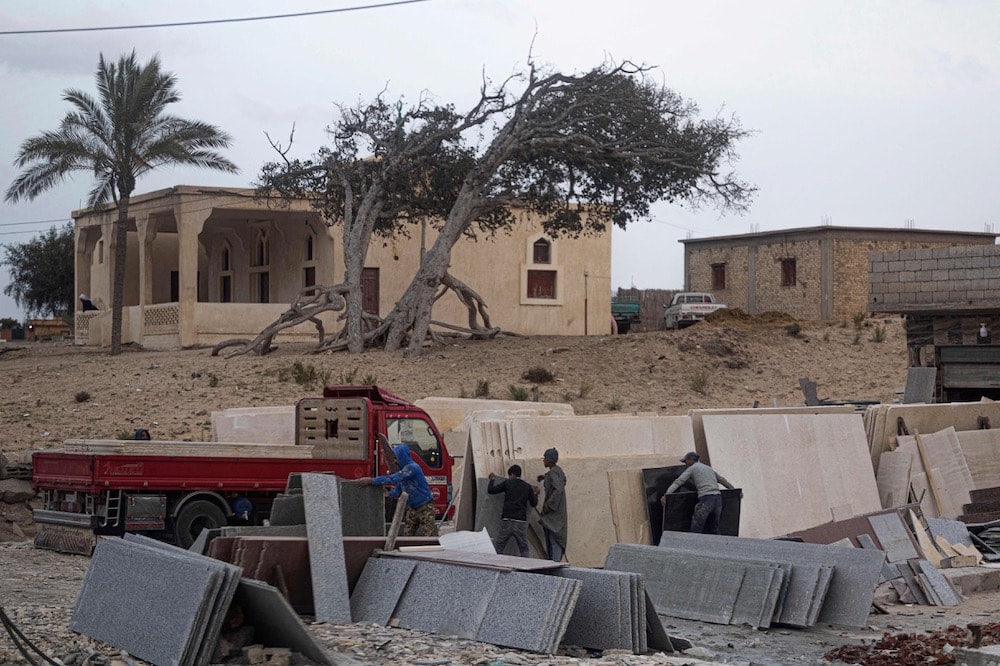Rights groups condemn the Egyptian government's decision to exclude Sinai residents from participating in the upcoming UN climate summit.
This statement was originally published on cihrs.org on 12 October 2022.
The 2022 United Nations Climate Change Conference (COP27) is scheduled to be held in the southern Sinai city of Sharm el-Sheikh next month, in November. The undersigned human rights organizations call on all attendees of the COP27, including activists, human rights defenders, and organizations in the field of environmental protection and human rights, to take into consideration the suffering of the inhabitants who live on the land where the conference is hosted, the Sinai Peninsula, and to recognize their human rights, which include the right to environmental protection.
The undersigned organizations condemn the Egyptian government’s exclusion of groups or representatives of the Sinai residents and tribes from participating in the COP27 or in meetings on the sidelines of its activities. Any Egyptian organization based in Sinai or mainly focused on Sinai is currently excluded from the COP27’s activities.
The signatory organizations further call for the Egyptian state to facilitate the return and compensation of the forcibly displaced from Sinai, to stop expropriating their lands, homes, and resources, and to recognize their ownership and residence rights. Sinai residents must have guarantees of their right to free movement, expression, organization and peaceful assembly. Furthermore, Sinai residents and local communities have a right to combat the marginalizing and discriminatory policies imposed upon them, and their grievances should be acknowledged. The Egyptian government and army must apologize for the heinous violations they have committed against Sinai residents, and attempt to redress them through a transitional justice program – as well as allowing the UN Special Rapporteur on counter-terrorism and human rights to visit Sinai and study the effects of the war on its local population. These are all basic and primary demands that cannot be overlooked or avoided in a high-level international forum hosted in the Sinai Peninsula.
Sinai inhabitants should be protected not only from the expected impacts of climate change but also from the systematic violations of their rights by the Egyptian government. The conference is only tens of kilometers away from areas deliberately marginalized by the state for decades, especially in North Sinai, including through massive violations of residence rights. Sinai has also been the central arena for the state’s decade-long “war against terrorism,” affecting the environment, the rights of indigenous people, and infrastructure, with a deliberate decline in the education and health sectors.
Since 2013, Egyptian authorities, under military supervision, have intensified armed confrontations in North Sinai under the pretense of eradicating the ISIS-affiliate armed group, “Sinai Province ”, as reported by the Sinai Foundation for Human Rights. Egyptian authorities have displaced tens of thousands of North Sinai residents, razed agricultural land, and imposed restrictions on the movement of people and goods, which has led to complete economic paralysis. Thousands of North Sinai residents have also been arrested and forcibly disappeared, kidnapped, tortured, and extrajudicially killed. Since then, North Sinai has turned into a closed military zone under a tight media siege to prevent the flow of information and access to journalists and independent observers.
The absence of the Sinai community from the COP27 is an expected result of the policies of the Egyptian government, which have stifled traditional forms of expression and assembly in Sinai society, including bureaus and popular councils. Many peaceful Sinai activists were arrested for attempting to organize independent groups. The state’s hostile policies and practices have led to a decline in peaceful work while instead nurturing an environment in which extremist groups thrive. It has also undermined the ability of independent civil society and aid organizations to access North Sinai, while obstructing the dispatch of independent missions or observers, and journalists and researchers. Sinai faces environmental threats including declining palm wealth, eroding beaches, declining groundwater reserves, rising temperatures, and degradation of the marine environment and coral reefs. Environmental protection groups in Sinai are unable to address these issues due to restrictions imposed on research, documentation, expression and criticism, and fear of reprisals and prosecution.
Despite repeated official statements recently and the escalation of field indications that the military operations in North Sinai are about to end, these grave violations remain ongoing without accountability or remedy. This situation imposes on the countries participating in the climate conference the responsibility to address the suffering of the inhabitants on the land hosting them. The people of Sinai, like all inhabitants of Earth, have a right to the legitimate defense of their lives and safety, and their right to protect themselves from dangerous changes in the climate must be upheld.



